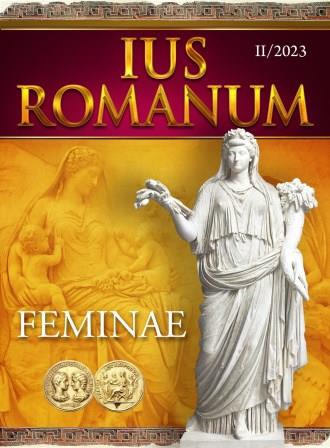GREEK WOMEN V. ROMAN WOMEN
GREEK WOMEN V. ROMAN WOMEN
Author(s): Sanja M. GligićSubject(s): Law, Constitution, Jurisprudence, History of Law, Civil Law, Commercial Law, Roman law
Published by: Софийски университет »Св. Климент Охридски«
Keywords: Athenian woman; „Against the Stepmother“; Neaera; Roman woman; Maesia of Sentinum; Afrania
Summary/Abstract: Although Greek and Roman women, in the earliest times, had a subordinate role, cases can be singled out in which they were directly or indirectly involved in court proceedings. In death, as in life, their identity was lost in that of their male relatives. This was old religious supremacy of the man and in that we can find the origin of woman’s political and legal subordination. The primary duty of women in ancient Athens was to marry and to bear legitimate children because the family hearth must not be extinguished (oikos eremos), so that their family unit might continue. The Athenian woman had no procedural ability, but preserved court speeches such as Antiphon’s „Against the Stepmother“ and Dhemostne’s „Against Neaera“ show that through rhetorical tricks, her presence could be felt indirectly in the courtroom. Though a Roman woman had to answer to her father legally, she didn't conduct her daily life under his direct scrutiny, and her husband had no legal power over her. Despite the fact that Ulpian stigmatizes court-appearance by women: “et propter sexus infirmi-tatem et propter forensiumr erum ignorantiam”, beside Vestal Virgins, examples of women who participated in court proceedings can be found. Valerius Maximus devotes a section of his work “On Memorable Deeds and Speeches” to women who conducted cases on their own behalf, or on behalf of others – Maesia of Sentinum and Afrania. This is also confirmed by Cicero who shows Republican women questioning jurists on points of law, including criminal law.
Journal: IUS ROMANUM
- Issue Year: 2023
- Issue No: 2
- Page Range: 122-136
- Page Count: 15
- Language: English

